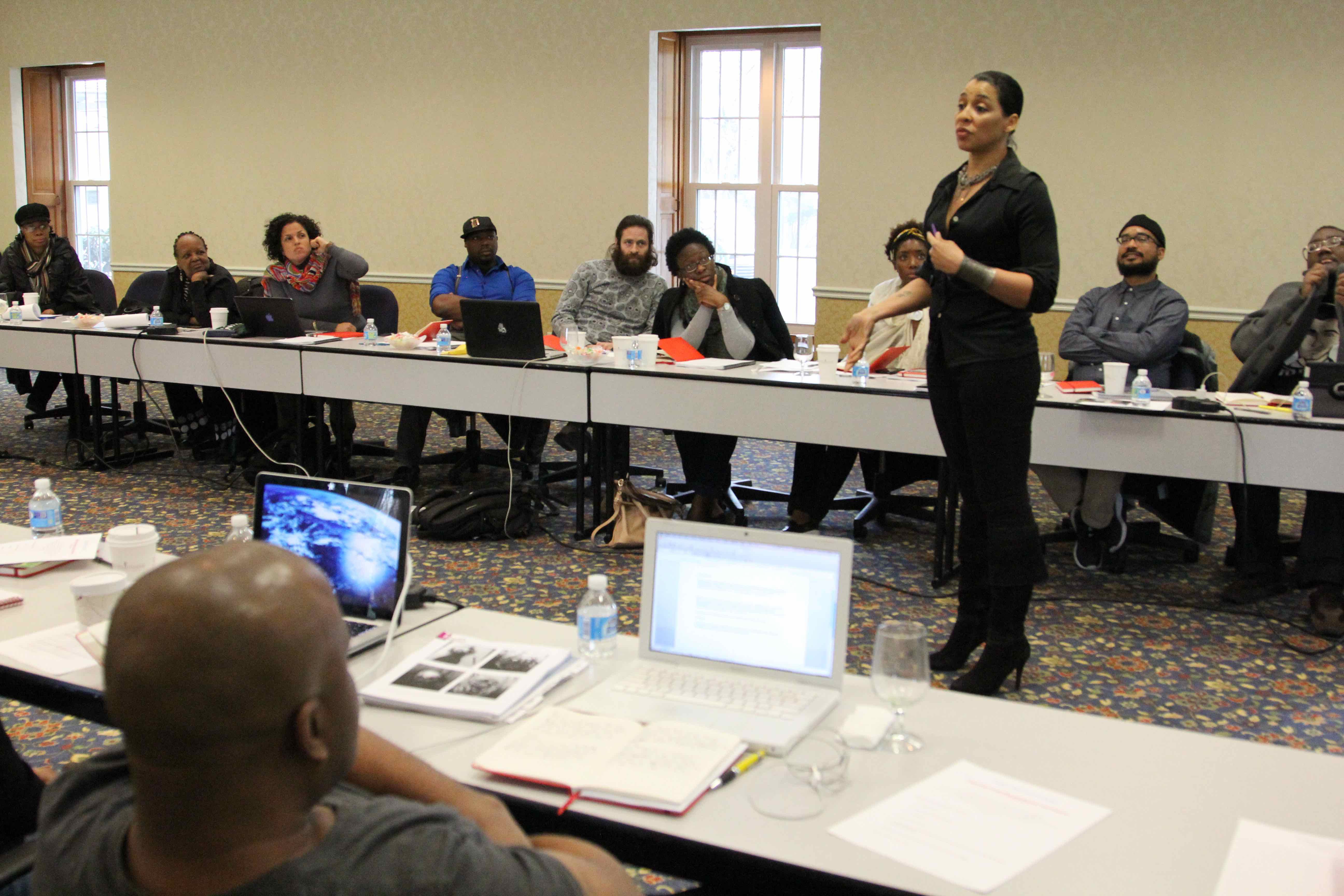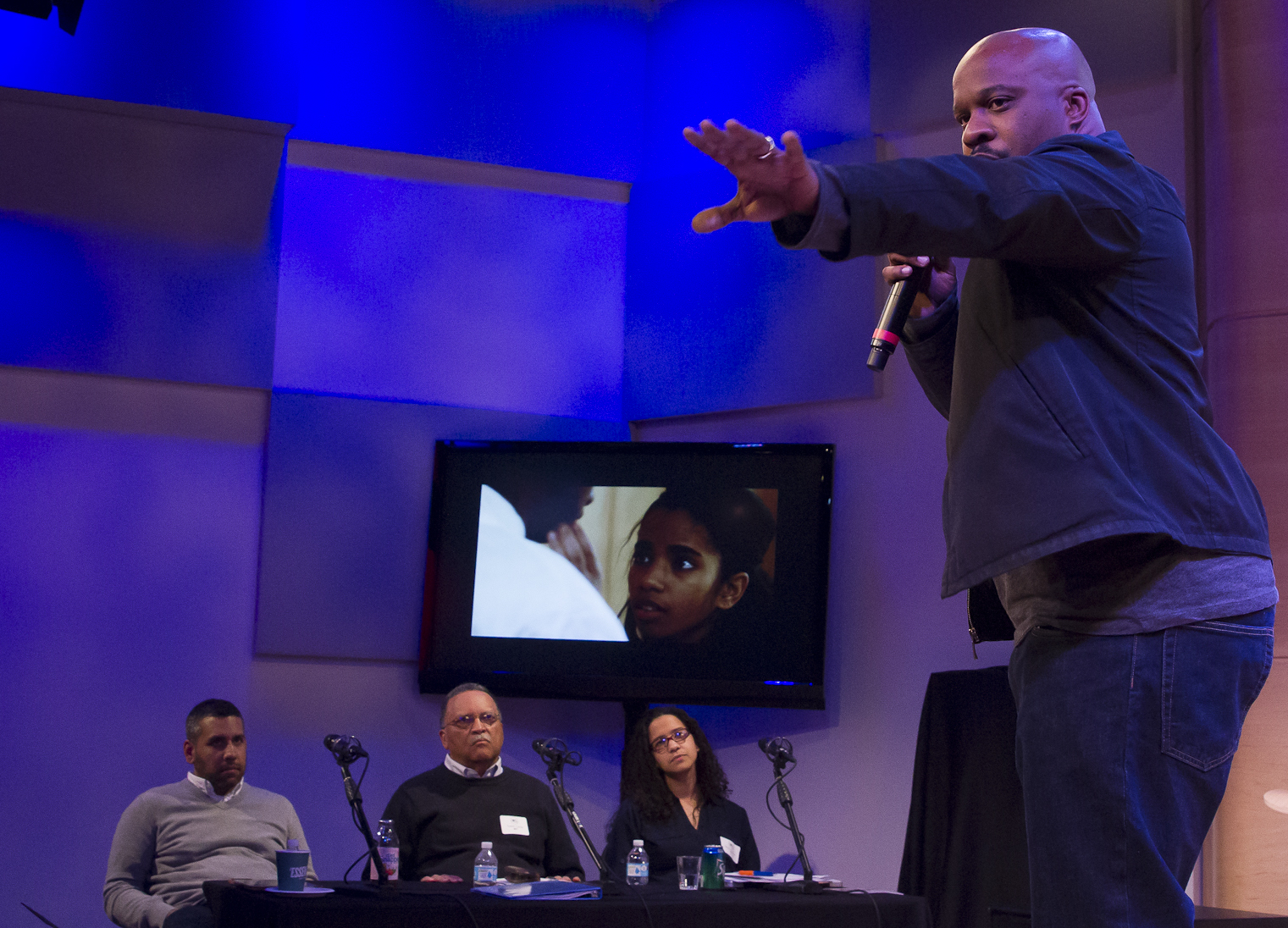Tag: National Black Programming Consortium
Jacquie Jones, former executive director of Black Public Media, dies at 52
Friends and colleagues remember Jones as an advocate for living up to public media's ideals for reaching underserved audiences.360 Incubator aims to amplify diverse voices in public media
“Independent producers really do need this support.”Four projects aimed at African-American audiences win pilot funds at inaugural Pitch Black event
The projects “will bring vitally needed fresh perspectives and new voices to public media," said the executive director of the National Black ...Jones steps down from helm of National Black Programming Consortium
Jacquie Jones, executive director of the National Black Programming Consortium (NBPC) since 2005, has resigned, effective immediately, but will continue to produce ...Web series explores what Black Folk Don’t do
Doing yoga, going green and enjoying winter sports sound like innocuous topics for a public media web series — that is, until ...Upcoming American Graduate specials tackle lax schools, juvenile justice system
A pair of documentaries to be released for public TV broadcasts next month focus on two of the most difficult aspects of ...What’s the job for the Public Media Corps?
Modeled on programs like Americorps and Teach for America, the Public Media Corps will hire local residents as “fellows” for yearlong residencies ...





